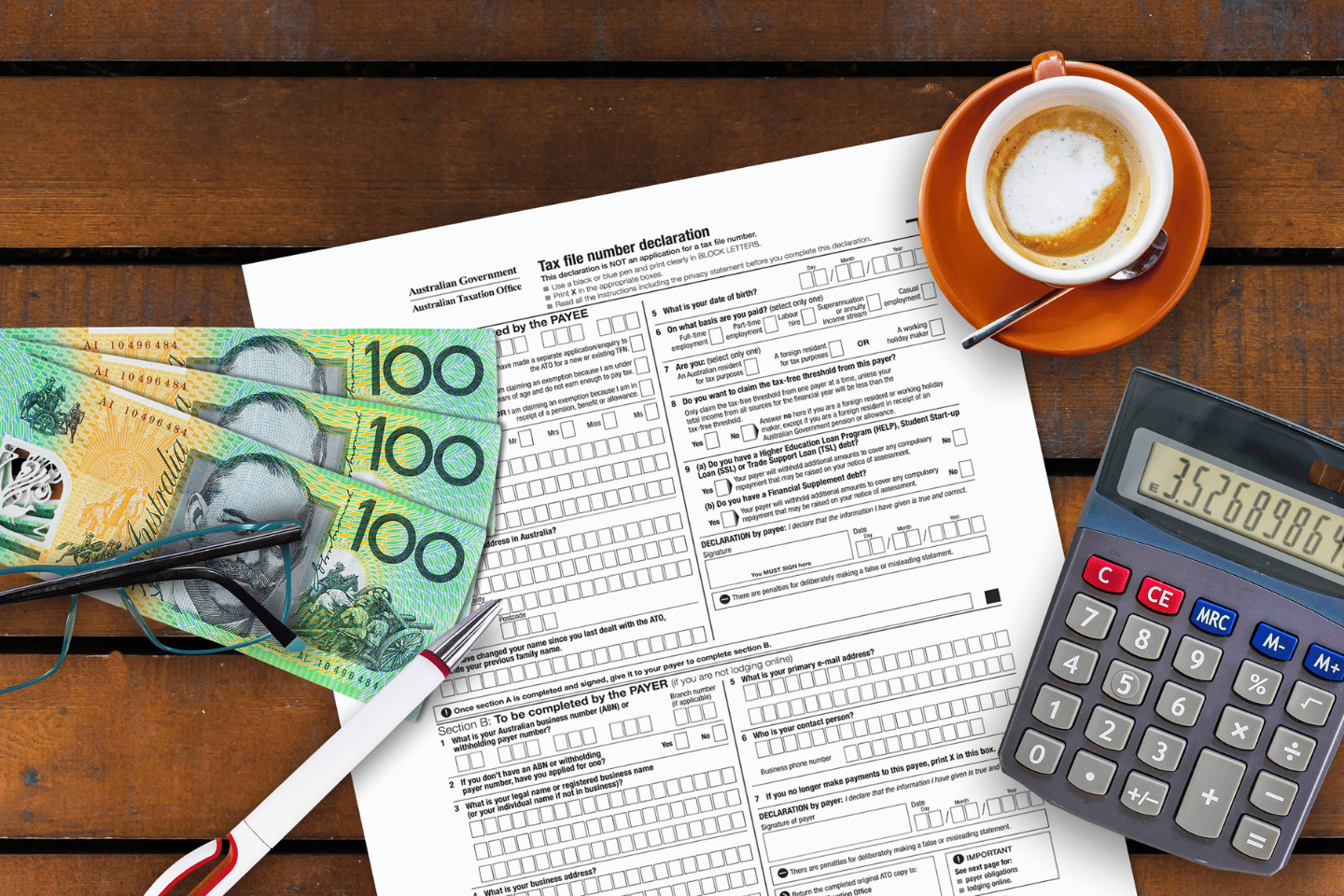Australian Gift Tax
Posted on:
Raffi Pailagian
MBA, BSc, DipFP
Financial Planner / Managing Partner
Australian Gift Tax – Navigating Tax-Free Gifting
Quick Summary
Although there is no specific Australian gift tax, certain gifts may trigger tax obligations under other rules. This article dives into the nuances of tax-free gifting and how to navigate it effectively.
Table Of Contents
- Does Australia Have A Gift Tax?
- What Gifts Are Tax-Free in Australia?
- Tax Implications Of Gifting Assets
- Tax-Free Gifting Strategies
- Common Questions About Gifting & Tax In Australia
- Conclusion
Gifting is a heartfelt way to share wealth and support loved ones. Whether it’s giving money to family members, gifting property, or donating to a charity, understanding the Australian gift tax implications is crucial.
In Australia, while there isn’t a specific “gift tax” as seen in some other countries, certain gifts may trigger tax obligations under other rules like capital gains tax (CGT) or income tax.
Does Australia Have A Gift Tax?
There is no specific formal “gift tax” on individuals, however, there are situations where gifting may have indirect tax implications, particularly when transferring high-value assets like property or shares.
For example:
- Capital Gains Tax (CGT) – If you gift an asset like property or shares, the ATO treats it as though you sold the asset at market value. This could result in a CGT liability for the giver. Learn more about CGT on the ATO’s capital gains tax page.
- Income Tax – For some business-related gifts or employee rewards, the giver or recipient may incur income tax obligations. Visit the ATO’s income tax guide for more details.
What Gifts Are Tax-Free in Australia?
Certain gifts are entirely tax-free and do not attract any tax obligations for either the giver or the recipient. These include:
1 – Cash Gifts
Giving cash to family members, friends, or other individuals does not attract tax in Australia. However, recipients should be aware that if the money generates income (e.g., interest from a savings account), the income is taxable. Read more on interest income tax.
2 – Personal Use Assets
Gifts of personal use items, such as household goods, jewellery, or clothing, are not subject to tax. These items are excluded from capital gains tax as long as they are not used to generate income. Details can be found on the ATO’s CGT exemptions page.
3 – Small Business & Charitable Donations
Gifts made to registered charities are tax-deductible for the giver, provided the charity is endorsed as a Deductible Gift Recipient (DGR). Ensure you keep receipts for claiming deductions. Learn more about DGRs on the ATO’s guide to charitable donations.
4 – Gifts Between Spouses
Assets transferred between married or de facto partners are generally tax-free, though this may vary in the case of separation or divorce settlements. For more information, visit the ATO’s guide on relationship breakdowns and tax.
Tax Implications Of Gifting Assets
While some gifts are tax-free, others may have tax implications depending on their nature and value. Below are common scenarios to consider:
1 – Gifting Property
When you gift property to a family member, the ATO treats it as if you sold the property at its current market value. This means:
- Capital Gains Tax: If the property has appreciated in value since you acquired it, you may need to pay CGT on the “profit” (market value minus purchase price). Learn more about how CGT applies to property on the ATO’s property CGT guide.
- Stamp Duty: The recipient may need to pay stamp duty on the property transfer, depending on state laws.
Pro Tip: Consult a tax professional before gifting property to understand potential liabilities.
2 – Gifting Investments
Transferring shares or other investments can also trigger CGT. The value of the investment at the time of the transfer is considered for tax purposes, even though no money changes hands. Refer to the ATO’s guide on shares and CGT.
3 – Gifting To Non-Residents
If you gift assets to someone who lives overseas, additional rules may apply. For instance, the recipient might face taxes in their country, and the gift may still trigger Australian tax obligations like CGT for the giver. Visit the ATO’s international tax guide for more information.
4 – Gifting Business Assets
If you gift assets from your business (e.g., equipment or stock), it may be treated as a sale for tax purposes. Additionally, GST could apply in some cases. Learn more about this on the ATO’s GST guide.
Tax-Free Gifting Strategies
To make the most of tax-free gifting opportunities, consider these strategies:
1 – Use Annual Gifting Limits
While Australia doesn’t have a gift tax, Centrelink assesses large gifts made within five years when determining eligibility for certain benefits. To avoid impacting these benefits, keep individual gifts under $10,000 and total gifts under $30,000 over five years. Learn more about Centrelink gifting rules on the Services Australia gifting page.
2 – Give Assets With Minimal CGT Impact
Gifting assets that haven’t appreciated significantly in value can help you avoid large CGT liabilities. Alternatively, consider gifting personal-use assets exempt from CGT.
3 – Plan Property Transfers Carefully
Before gifting property, explore options like:
- Joint ownership arrangements to share CGT liability.
- Selling at a discounted price to reduce the market value impact while still helping the recipient.
4 – Leverage Superannuation Contributions
Instead of gifting money outright, consider making non-concessional contributions to a family member’s superannuation fund. This not only supports their financial future but also avoids direct gifting complications. Learn more about super contributions on the ATO’s superannuation guide.
Common Questions About Gifting & Tax In Australia
Q: Do I Need To Declare Gifts To The ATO?
A: Generally, no. Gifts of cash or personal items don’t need to be declared. However, if the gift involves an asset that triggers CGT, it must be included in your tax return. Refer to the ATO’s CGT reporting page.
Q: Are Gifts From Overseas Taxed In Australia?
A: Receiving gifts from overseas is not taxable. However, if the gift generates income (e.g., rental income from a gifted property), that income is taxable. Learn more about foreign income on the ATO’s foreign income page.
Q: Can I Claim A Tax Deduction For Gifts To Family Members?
A: No. Tax deductions are only available for gifts made to eligible charities or non-profit organisations. Refer to the ATO’s deductible gift recipient guide.
Conclusion
Gifting can be a powerful way to share your wealth, but it’s essential to understand the tax implications. While many gifts are tax-free, others, like property or investments, can trigger obligations such as CGT or stamp duty. Planning your gifts strategically and consulting with a financial adviser can help you minimise tax impacts and make the most of your generosity.
Important Disclaimer: The information provided in this article is general in nature and does not constitute financial advice. Please consult with a qualified financial advisor to discuss your individual circumstances.




